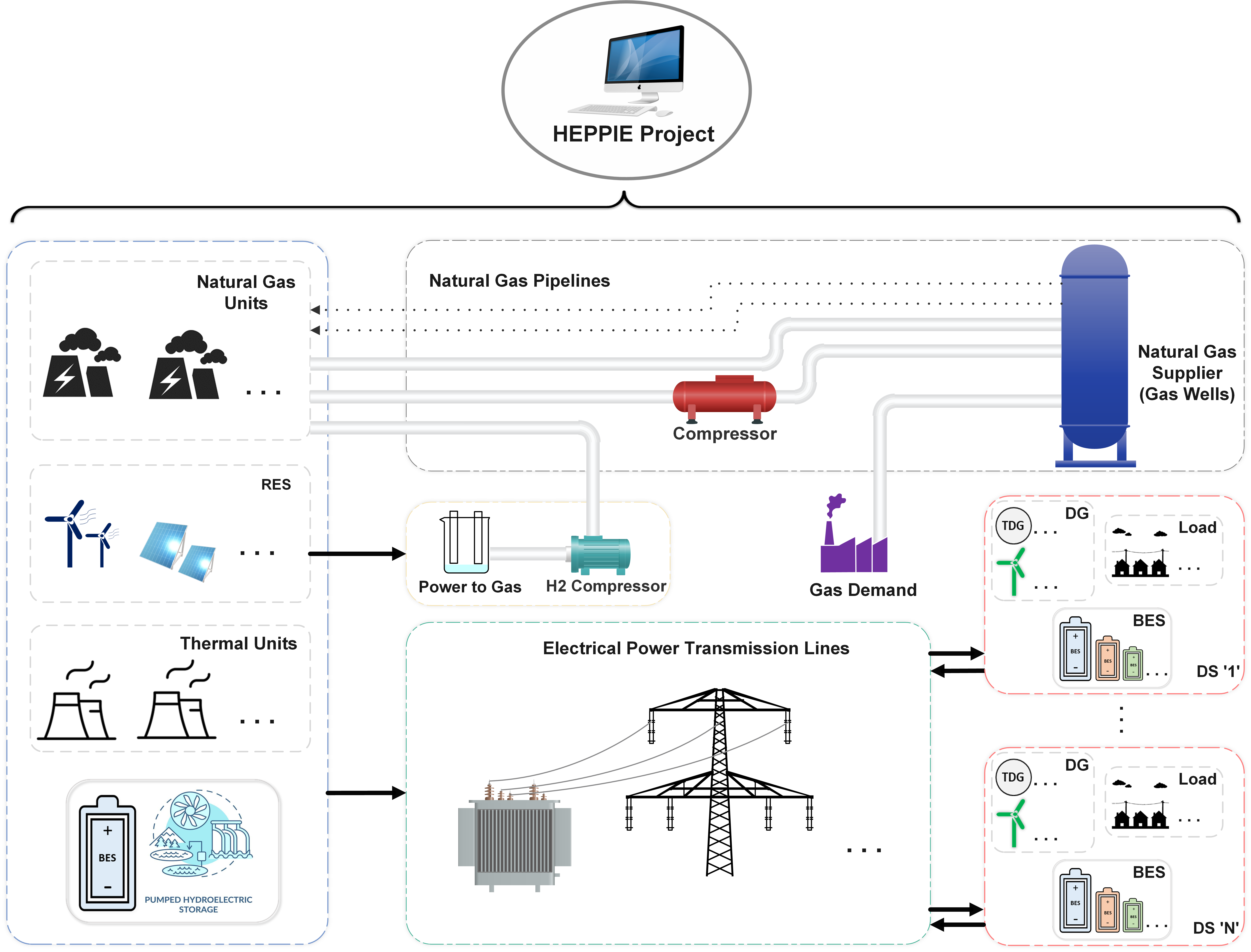HEPPIE
Heuristic Efficient Proxy-based Planning of Integrated Energy Systems
Project description

The HEPPIE project is conducted jointly between TU Delft and the Réseau de Transport d’Électricité (RTE: French TSO) R&D department. It aims to develop advanced computational methods to deal with the complexity of long-term multi-sector energy systems expansion planning models under short-term variability of load demand and renewable energy generation. In expansion planning problems, the huge number of decision variables with different dimensions, e.g., exact capacity, location, and time of construction, makes the optimal decision model very complex with a large computational burden. This challenge will be more critical when operational details, as an inevitable part of the model, are also considered. Moreover, future power systems with a high penetration of renewable energy sources require more operational flexibility to deal with the inherent variability of their output. Some of the operational flexibility sources are energy storage systems, demand response programs, controllable high voltage direct current (HVDC) lines, and coordination of electric power and natural gas systems. Natural gas-fired generation (NGFG) units with a fast response can play an important role in the operation of electric power systems by providing more short-term flexibility and security of supply. The HEPPIE project addresses the mentioned challenges by developing an efficient long-term expansion model and a computational method using a combination of AI and conventional optimization methods. The project modeling and simulations are performed using MATLAB, Pyomo environment (in Python), and the General Algebraic Modeling System (GAMS).
Intended deliverables
• Developing a long-term multi-sector energy systems expansion planning model.
• Utilizing optimization and machine learning-based methodologies to capture the short-term variability in a long-term expansion planning model.
• Incorporating operational details and risks in the proposed model using a proxy-based procedure.
• Integrating the above into an advanced computational method to solve the proposed model with a tractable computational burden.
• Analyzing the effectiveness of the proposed model and solution method over a real large-scale test system.
Project Team:

Postdoc Researcher:
M. (Mojtaba) Moradi Sepahvand

Supervisor:
Dr. S. (Simon) Tindemans

Supervisor:
Prof.dr.ir. Han La Poutre

Supervisor:
Dr.ir. M. (Milos) Cvetkovic

M. (Mojtaba) Moradi Sepahvand
Mojtaba is currently a Postdoc Researcher in the IEPG Research Group. He received his Ph.D. degree in power system engineering from K. N. Toosi University of Technology, Tehran, Iran, in 2021. His research interests include modern power system planning and operation, renewable integration, energy storage devices, uncertainty handling, power system resilience, and power system observability. His current project is Heuristic Efficient Proxy-based Planning of Integrated Energy (HEPPIE), conducted jointly between TU Delft and Réseau de Transport d’Électricité (RTE).